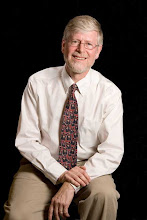Did you start, like I did, by researching those things Protestants typically find 'wrong' and 'non-scriptural'? What particular parts of Catholicism did you feel you may have problems with?
What parts? Gee, all of it. As an educated evangelical in the 'Reformed' tradition, I affirmed solo scriptura, solo fide -- Scripture alone, faith alone. The Catholic Church's teaching about something called "Sacred Tradition" in addition to Scripture - horrors - was a biggie. Hadn't Jesus castigated the pious Pharisees for basing their oppressive legalism on human traditions (Mark 7)? And instead of relying on heart-felt faith, it seemed Catholics depended on 'works' and 'earning merit', which negated the cross, and I never met a Catholic who had any assurance of forgiveness and eternal life -- just loads of guilt. I thought the Book of Romans had pretty much settled the issue of justification by faith apart from works, and Ephesians 2:8-10 seemed clear to me about the relationship of faith and works. Works remain important as an evidence for genuine faith and to live a life of love in service to others - but no one 'earns' their way into heaven (And I'll address both issues of solo scriptura and solo fide another day).
Oh, what else: the Mass as a sacrifice, Mary, purgatory, indulgences, a checkered history (The Inquisition, Crusades - the usual suspects), saints, the papacy, rote and repetitive prayers like the rosary, and what seemed to be a pervasive superstitious attitude about religious practices of other sorts all turned me off. Some of your questions later on deal with these in particular, so I'll get to them eventually. So, the answer is yes, I had a lot of hurdles - and very high ones. And the odd thing is that the things that were once impediments are now sources of deep rejoicing.
Why did you say in our last letter that you feel you've 'come home'?
I was raised Catholic (rather nominally) and tossed it all overboard when I was a young man, regarding it all as irrelevant hocus-pocus. But I genuinely came to Christ in college (or I should say, He came to me. Long story.)
I found a caring Christian community filled with intelligent people and grew there. The spiritual deadness I'd experienced in the Catholic Church convinced me at the time - and years after that - that the Catholic Church was no place to be if one wanted to grow as a Christian. My wife was also raised Catholic and had a much better experience, but we married outside the Church in a very formal Presbyterian ceremony - to her parents' great consternation - and lived as devoted Protestants for a long time. My wife's mother is gone now, but whenever I say something particularly "Catholic," my wife says "Helen is laughing" - referring to her devout Mom.
More than returning to my childhood roots, though, there is a sense that I have returned to the Church that Jesus founded and still loves, despite its flaws. I understand now why Catholics fondly call Protestants "separated brethren", but this separated one has returned. There is an organization set up for people like me called "The Coming Home Network" which specializes in assisting Protestant pastors and ministry professionals along this journey toward "full communion" with the Church. It is staffed by - you guessed it - former pastors of every sort who crossed the Tiber, and not without difficulty (they left their pastorates and therefore their livlihood). Their website is worth a look.
Your next question is about the terrible abuse scandal and what effect that had on my journey. I'll get to that next time.
Before I close, Candice, you might notice someone else has joined our conversation with an interesting comment/question which I hope I addressed satisfactorily and with charity. I'll be glad to reply to other inquirers, too, as long as the inquiries are sincere and in good faith.
Grace and peace.
Sunday, March 30, 2008
Subscribe to:
Post Comments (Atom)

No comments:
Post a Comment